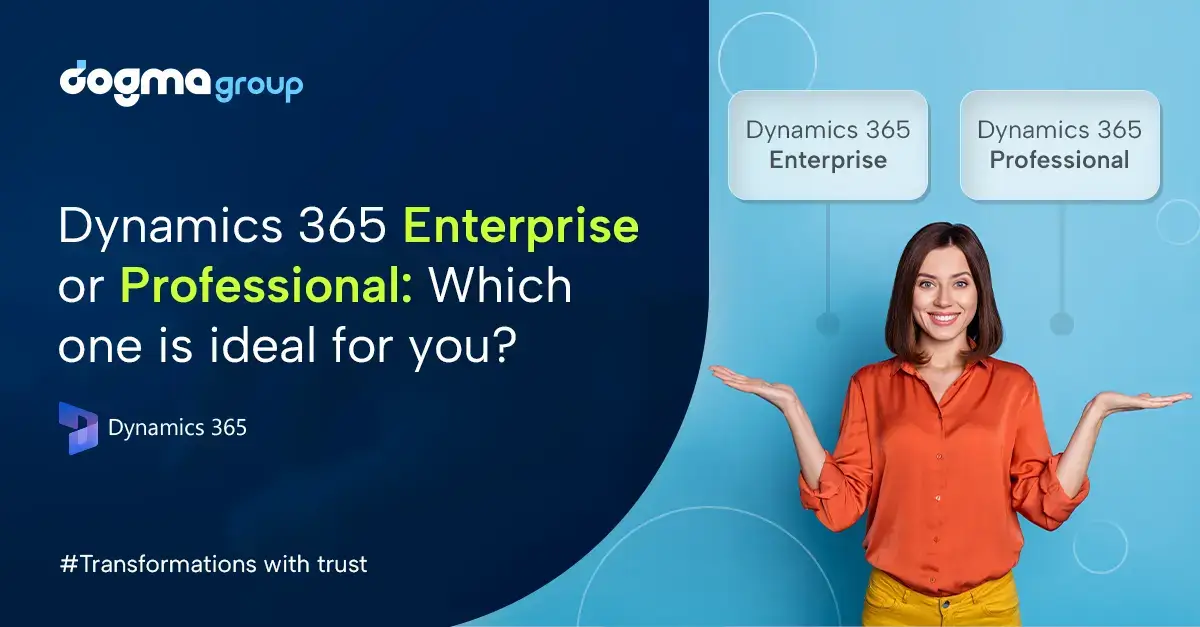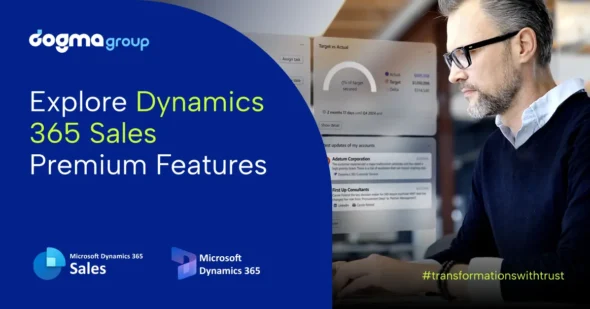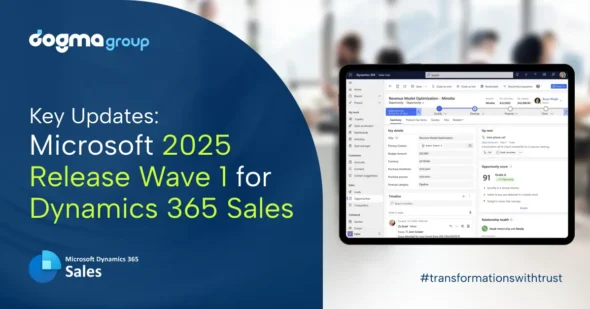Looking to licence Dynamics 365 but having trouble choosing between its Enterprise and Professional editions? Fret not, you’ve come to the right place! We can definitely help you on this one.
Dynamics 365 offers a range of sales automation and business planning solutions for businesses of all sizes and sectors. Its applications drive business growth by automating manual tasks, centralising data, and offering data-driven insights for decision-making. By offering unparalleled flexibility and scalability, Dynamics 365 ensures greater adaptability and agility for its customers in the ever-changing economy.
Some of its top business solutions are:
- Sales
- Marketing
- Customer Service
- Field Service
- Finance
- Supply Chain Management
- Project Operations
- Commerce
- Business Central
- Customer Insights
- HR
Among these Dynamics 365 apps, Microsoft offers Sales and Customer Service modules in Enterprise and Professional editions. While the Professional versions is meant to empower small and medium businesses (SMBs), the Enterprise version is more suitable for growing SMBs scaling into larger organisations.
But there’s more to deciding which one is ideal for your situation than just that. Other critical things, like functionality, pricing, and your current and future business needs, also come into play while choosing between Dynamics 365 Enterprise and Professional editions. And that’s exactly what we explain below.
Comparing Dynamics 365 Enterprise and Professional
Functionality and Features
There’s a reason why Enterprise and Professional editions of Dynamics 365 target two different business segments.
Microsoft wants to empower customers to choose the level of functionality appropriate for their business with Sales and Customer Service licensing options. That comes with the flexibility to scale up or down as your business evolves.
However, there are some general limitations. Customers using Professional will not be able to combine Enterprise within the same environment instance, and vice versa. That means, to mix both licences, you need to deploy two separate environments. And, while Professional is completely cloud-based, Enterprise may also be licensed per device, on-premise.
As for individual applications, Sales Enterprise and Professional differ in more than a few ways. For instance, a Sales Professional licence offers essential sales force automation tailored for organisations with simpler sales processes. Conversely, a Sales Enterprise licence extends beyond mere sales force automation, addressing the requisites of intricate sales processes like real-time data analytics and reporting capabilities.
Besides the capabilities present in the Professional licence, Sales Enterprise encompasses customisation, out-of-the-box extensibility, embedded intelligence, and forecasting. Notably, the Sales Enterprise licence includes the Microsoft Viva Sales application, which is an add-in for the Professional version.
Also, upon acquiring a Sales Enterprise licence, users gain access to 2,000 Customer Voice responses per tenant per month, along with the option to procure additional response packs as needed (available in packs of 1,000 responses per tenant per month). The Professional licence does not support these.
Additionally, Sales Enterprise incorporates supplementary features such as assistant cards, email engagement, automatic capture of Outlook activity, and three new premium offerings: Conversation Intelligence, Sales Accelerator, and Lead & Opportunity scoring. These advanced functionalities leverage automation and AI to assist salespersons in prioritising tasks, providing real-time analysis during calls, automating action notifications, and generating meeting and email summaries automatically– capabilities not accessible in Sales Professional.
Furthermore, users with a Sales Enterprise licence and activating Conversation Intelligence get 3 hours of call processing capacity. They also get Sales Accelerator the provides 1,500 sequence-connected records per month. Likewise, Predictive Scoring allows viewing of up to 1500 scored Leads/Opportunity records per environment per month.
When it comes to Dynamics 365 Customer Service, a Professional licence furnishes fundamental resources for customer service agents, along with a self-service customer website and access to a knowledge base for end customers. This provision is tailored to scenarios requiring streamlined support capabilities for customers and service teams in less complex situations.
In contrast, Dynamics 365 Customer Service Enterprise licences build upon the foundation of Customer Service Professional. Particularly, the Enterprise licence introduces supplementary functionalities that enable users to schedule and dispatch services, form teams, and manage resources by integrating with other Dynamics 365 applications like Field Service and Project Operations, provided the organisation also possesses licences for those.
Like Sales Enterprise, obtaining a Customer Service Enterprise licence entitles users to 2,000 Customer Voice responses per tenant per month, with the option to acquire additional response packs as needed. That means you can understand your customers to build better experiences and deliver personalised services by listening to every customer feedback in real time.
Furthermore, the Enterprise licence encompasses Unified Routing, delivering intelligent and automated routing and assignment capabilities to customer service organisations. This empowers organisations to utilise advanced features like multi-stage classification rules to update the work item for service requests with details, like skills, issue, severity, support centre, and language for automated assignments based on agent availability, capacity, or specialisation. This is called unified routing features and with Customer Service Enterprise, you get 50 record routes per user each month, complemented by features like Routing records, Chat, and Digital Messaging conversation records.
Moreover, the Customer Service Insights component integrated within the Customer Service Enterprise licence offers analytics and AI capabilities, facilitating a better understanding of support engagements and emerging trends. This aids in identifying opportunities to enhance automated support systems and tracking the performance of support options and agents. The system employs topic clustering to group related cases, enabling customers and service agents to efficiently retrieve information from the knowledge base.
Pricing Models of Dynamics 365 Professional and Enterprise
Besides capability differences, licensing cost can be another decisive factor when it comes to choosing between Dynamics 365 Professional and Enterprise. The real-life implications? There are two.
First, and obvious, the lower price point of the Professional licence puts it right on the radar of SMBs. Second, it makes it financially less risky for larger organisations to test the waters before diving into the full-blown Dynamics 365 Enterprise licence.
So, before you jump into conclusion, consider these pricing models carefully.
- Sales Professional costs £53.40 per user per month and offers core sales force automation and Microsoft 365 integration.
- Sales Enterprise costs £78.10 per user per month and offers industry-leading sales force automation with contextual insights and advanced customisation capabilities, along with Viva Sales.
- Customer Service Professional costs £41.10 per user per month and offers core customer service capabilities
- Customer Service Enterprise costs £78.10 per user per month and comes with advanced customer service capabilities
Customisations and Reporting
Functionalities and pricing aside, another thing that may influence your decision to deploy Dynamics 365 Professional or Enterprise is your customisation and reporting needs. That’s because regardless of your business scale, whether you’re a SMB or a regional enterprise or a multinational company, your customisation and reporting needs can be unique and complex. So, what you need to consider is this: Professional licence comes with certain restrictions when it comes to customisation and reporting options as compared to Enterprise licence.
More precisely, Professional offers up to 15 custom tables, up to 5 custom reports, charts, and dashboards, up to 5 business processes, and no extension to custom out-of-the-box reports. However, Enterprise licence offers unlimited support for all of these needs. What’s more, it also comes with embedded intelligence and forecasting capabilities that Professional licence doesn’t.
Dynamics 365 Professional and Enterprise Differences
Dynamics 365 Sales Professional and Enterprise Comparison
Here’s a quick comparison between Dynamics 365 Sales Professional and Enterprise licence offerings.
| SN | Features | Dynamics 365 Sales Professional | Dynamics 365 Sales Enterprise |
| 1 | Sales Execution | Limited | Included |
| 2 | Microsoft 365 integration | Limited | Included |
| 3 | Reporting and analysis | Limited | Limited |
| 4 | Customisation and extensibility | Limited | Included |
| 5 | Contextual insights | Not included | Limited |
| 6 | Sales accelerator | Not included | Limited |
| 7 | Conversation intelligence | Not included | Included |
| 8 | Viva Sales | Add-in | Included |
Dynamics 365 Customer Service Professional and Enterprise Comparison
Here’s a quick comparison between Dynamics 365 Customer Service Professional and Enterprise licence offerings.
| SN | Features | Dynamics 365 Customer Service Professional | Dynamics 365 Customer Service Enterprise |
| 1 | Unlimited named users | Included | Included |
| 2 | Case management | Included | Included |
| 3 | Knowledge management | Included | Included |
| 4 | Embedded intelligence | Not included | Included |
| 5 | Analytics and reporting | Not included | Included |
| 6 | Omnichannel add-in support | Not included | Add-in |
| 7 | Customisation and extensibility | Limited | Included |
| 8 | Unified service desk | Not included | Included |
| 9 | Context-driven suggestions | Not included | Included |
| 10 | Unified routings | Not included | Included |
| 11 | Multisession support | Not included | Included |
| 12 | Portals | Not included | Included |
Seek Expert Help
Even with all this information, choosing the right Dynamics 365 licence can be tough when it comes to Professional and Enterprise editions. What you need is a product-agnostic system assessment from Dogma‘s experts. That way, you can focus on your core business while we assess your existing processes and future needs, and perform a fit-gap analysis, to determine the best solution between Professional and Enterprise for your organisation. Don’t hesitate to reach out to our experts with your Professional and Enterprise licensing concerns. We’re more than happy to assist!





